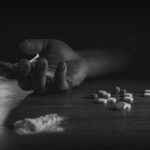- Willow Ridge Recovery
- Uncategorized
- How Long Is Rehab for Alcohol?
The Warning Signs of Drug Addiction: What to Look For
Drug addiction rarely develops overnight. For many individuals, it begins with occasional use that slowly escalates until it disrupts nearly every part of life. Recognizing the warning signs of drug addiction early is one of the most important steps you can take to protect yourself or someone you love. Knowing what to watch for can make the difference between continued harm and beginning the journey toward healing.
At Willow Ridge Recovery in New Jersey, we understand how overwhelming it can feel to suspect addiction. This guide will help you understand the physical, behavioral, and emotional indicators that point to drug misuse and dependence—and explain why seeking professional help is essential.
Physical Signs of Drug Addiction
One of the clearest ways addiction reveals itself is through sudden or dramatic physical changes. Because different drugs affect the body in unique ways, these shifts may look different for each person, but common signs of drug addiction include:
- Noticeable weight changes: Rapid loss or gain that doesn’t have another explanation.
- Neglected hygiene: Skipping showers, wearing dirty clothes, or a general lack of self-care.
- Unusual fatigue or energy spikes: Addiction often disrupts natural sleep patterns, leaving someone either overly tired or unnaturally alert.
- Frequent illnesses or injuries: Lower immunity, unexplained bruises, or injuries caused by impaired judgment.
These physical symptoms often appear before a person is ready to acknowledge there’s a problem, making them an important warning sign for family and friends to notice.
Behavioral Changes That Signal Addiction
Addiction impacts the brain’s reward system, which often leads to dramatic changes in behavior. Watching for these shifts is key when trying to identify the signs of drug addiction:
- Secrecy and defensiveness: Hiding where they’ve been, lying about activities, or avoiding questions.
- Loss of motivation: No longer caring about school, work, or hobbies that once brought joy.
- Risk-taking behavior: Driving under the influence, engaging in unsafe sexual practices, or stealing to support drug use.
- Emotional volatility: Sudden outbursts, irritability, or mood swings that seem unrelated to the situation.
When these behaviors become frequent and disruptive, they often indicate that recreational use has crossed into dependency.
Social and Relationship Warning Signs
The impact of drug addiction extends far beyond the individual—it often strains or even severs relationships. Some of the most common social signs of drug addiction include:
- Isolation: Avoiding family gatherings, social events, or spending most of the time alone.
- Frequent conflicts: Arguing with loved ones, losing friendships, or developing tension at work.
- Financial struggles: Constantly borrowing money, missing bills, or selling belongings.
- Legal trouble: DUIs, arrests, or criminal behavior tied to substance use.
Because addiction thrives in secrecy, strained relationships are often one of the strongest outward indicators that help is needed.
Emotional and Psychological Signs
Drugs alter brain chemistry, which often leads to noticeable emotional and psychological symptoms. Recognizing these signs of drug addiction is just as important as spotting physical or behavioral ones:
- Constant cravings: An inability to focus on anything except when or how to use again.
- Failed attempts to quit: Promising to stop, but falling back into use despite consequences.
- Anxiety and depression: Substance use can intensify mental health challenges, creating a dangerous cycle.
- Confusion or paranoia: Some substances trigger disorganized thinking or suspicious behavior.
Because mental health and addiction are closely linked, many individuals benefit from treatment that addresses both simultaneously.
Why Recognizing Warning Signs of Drug Addiction Early is Crucial
The longer addiction continues untreated, the more severe the consequences become—physically, emotionally, and socially. Health declines, relationships fracture, and the risk of overdose increases. Recognizing the signs of drug addiction early allows individuals and families to seek help before the damage grows worse.
If you notice these patterns in yourself or a loved one, trust your instincts. Reaching out for professional help is not a sign of weakness—it’s the first step toward regaining control.
Getting Help at Willow Ridge Recovery in New Jersey
At Willow Ridge Recovery in Holmdel, NJ, we specialize in helping individuals and families address drug addiction with compassion, expertise, and evidence-based treatment. Our programs provide personalized care that supports recovery on every level—mind, body, and spirit.
Whether you’re struggling personally or worried about someone you love, you don’t have to face addiction alone. Willow Ridge offers medical detox, therapy, dual-diagnosis care, and long-term recovery planning. We’re here to guide you through every stage of the healing process.
Contact us Today
If you recognize the signs of drug addiction in your life or in someone close to you, it’s time to act. Willow Ridge Recovery in New Jersey is ready to help you take back control, rebuild your health, and move toward lasting sobriety.
Contact Willow Ridge Recovery today to speak with our admissions team and start your journey to recovery. Hope and healing are possible; you just need to take the first step.

About Clinical Reviewed Caitlin Moore, LPC, LCADC, CCS
Learn more about Caitlin Moore, our Clinical Director at Willow Ridge Recovery.












